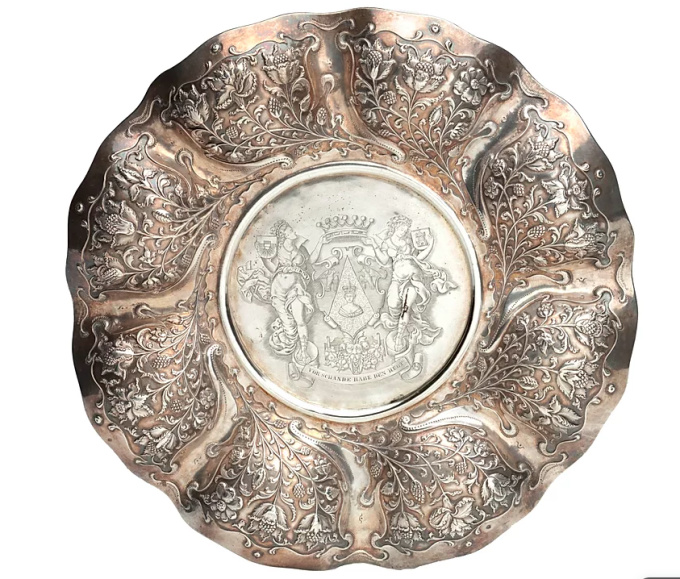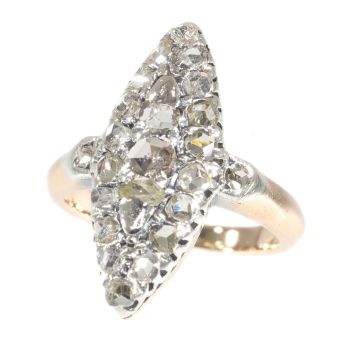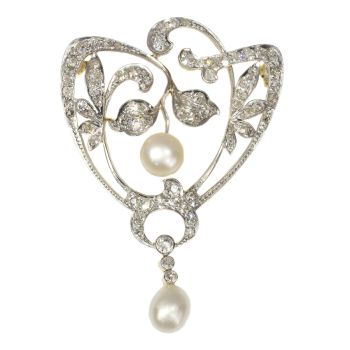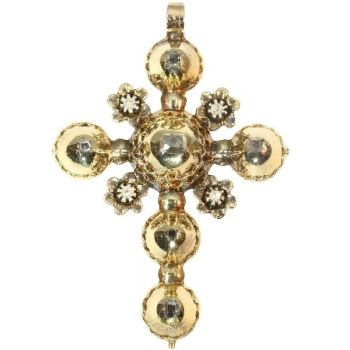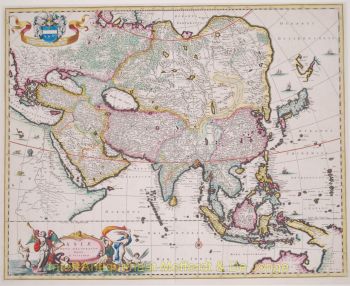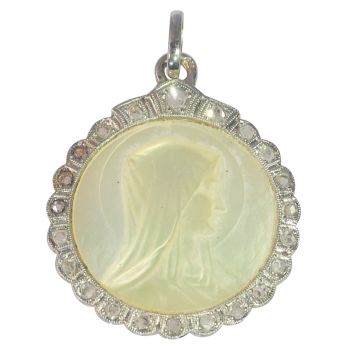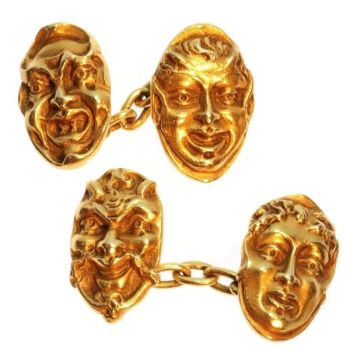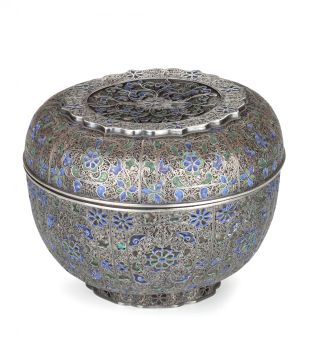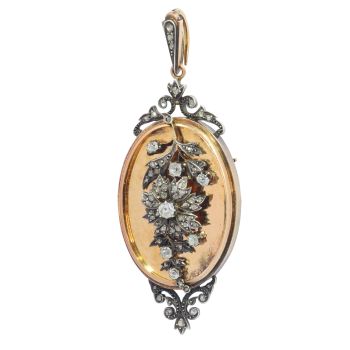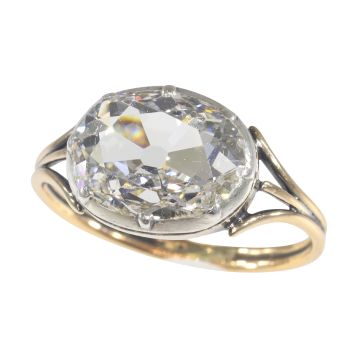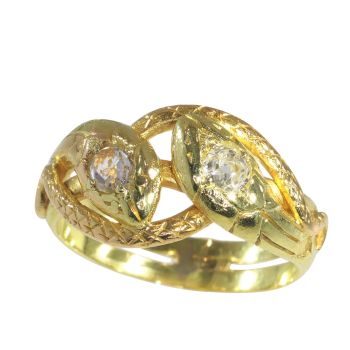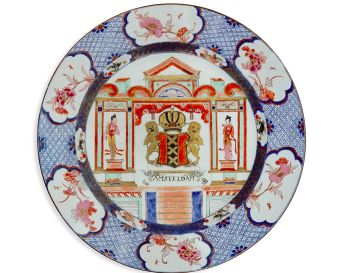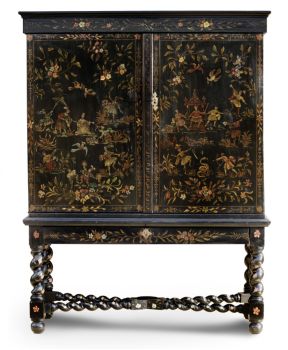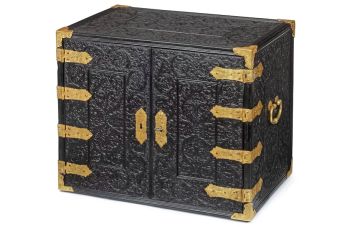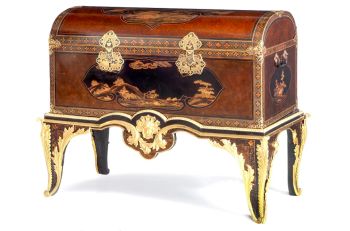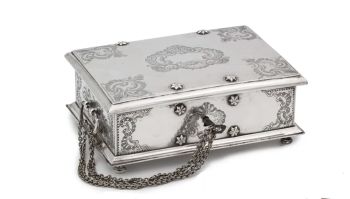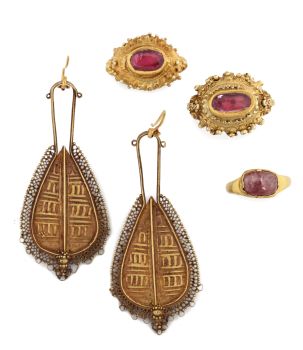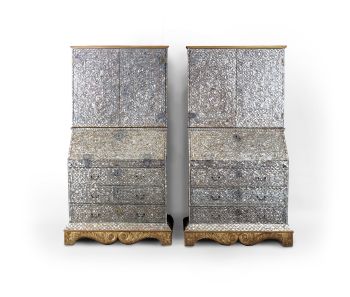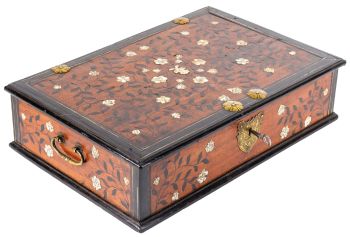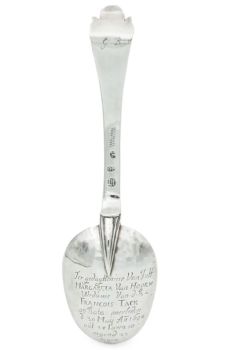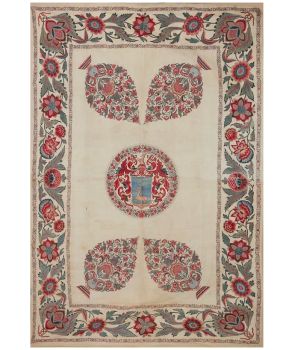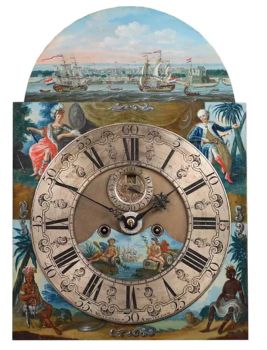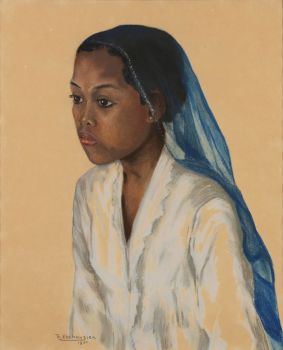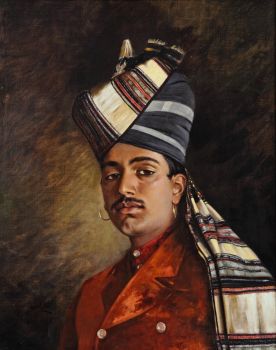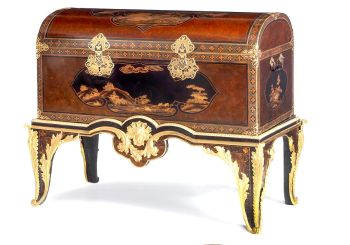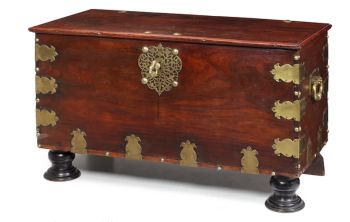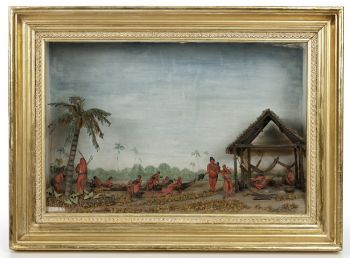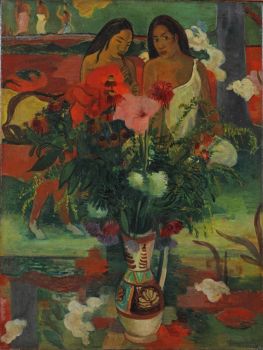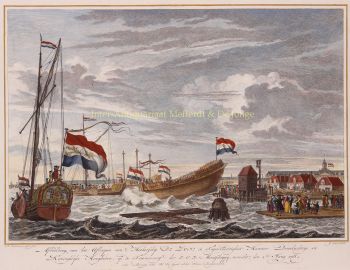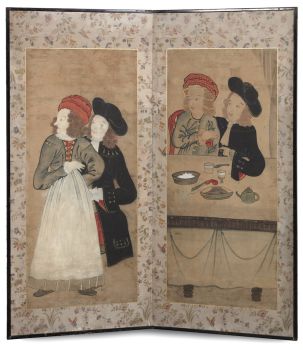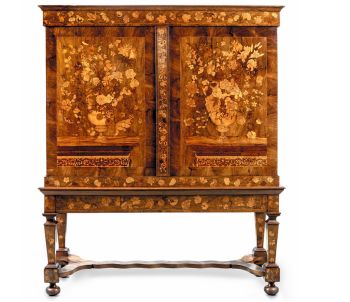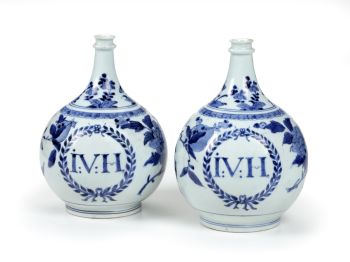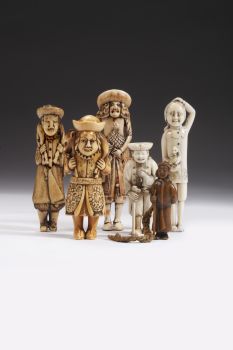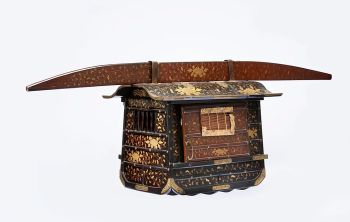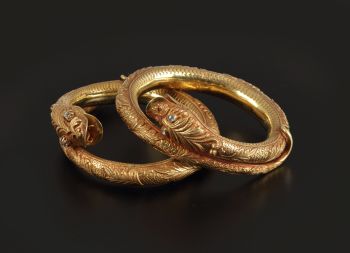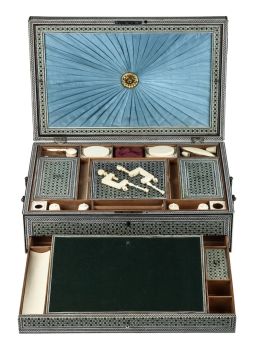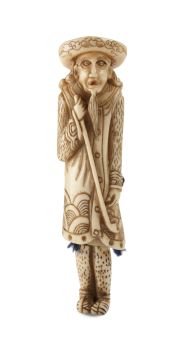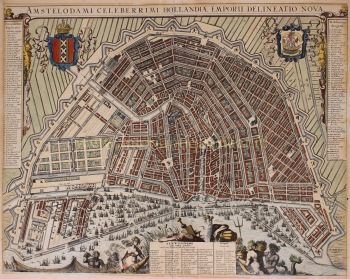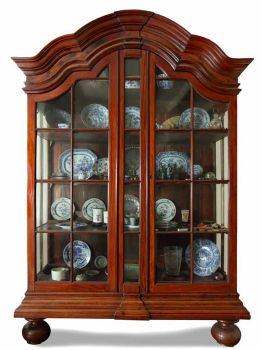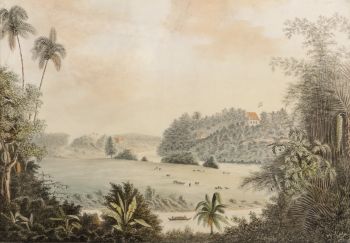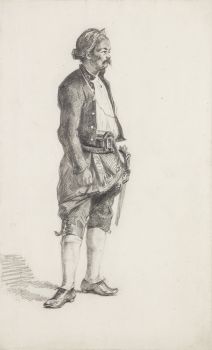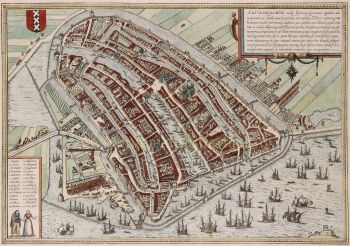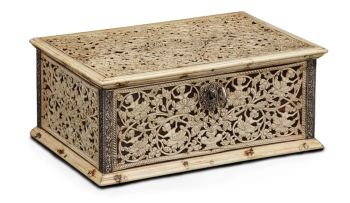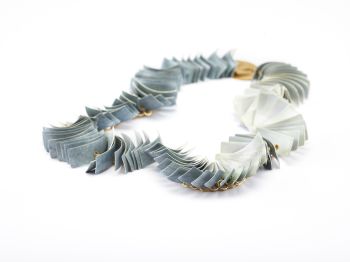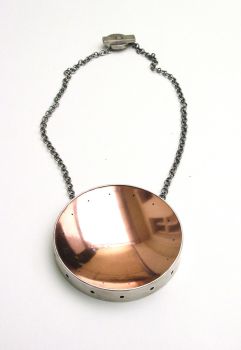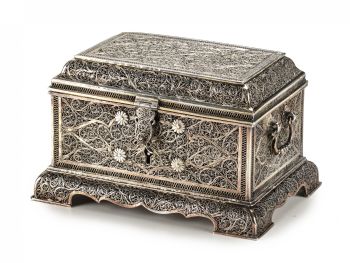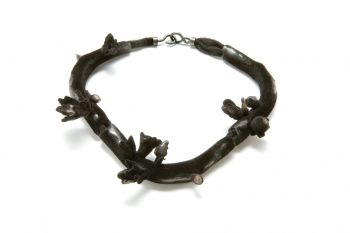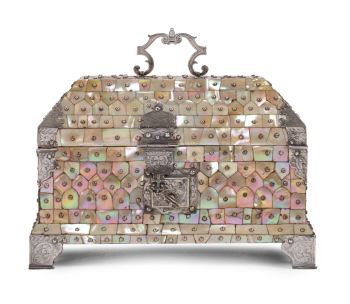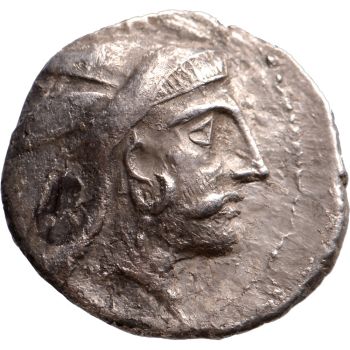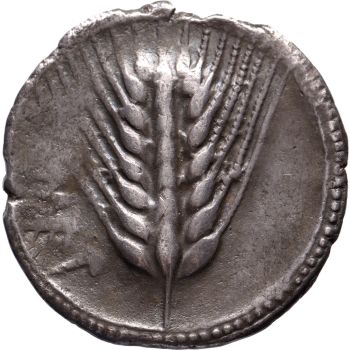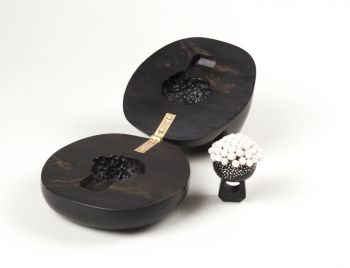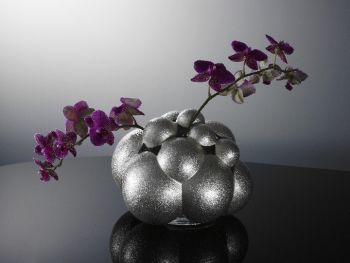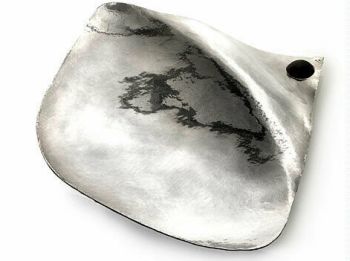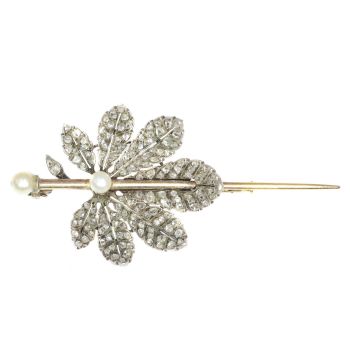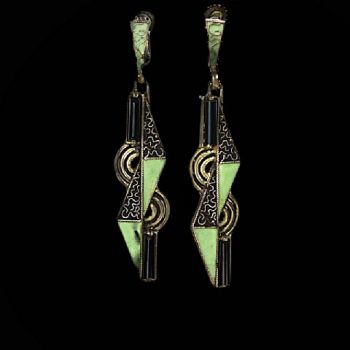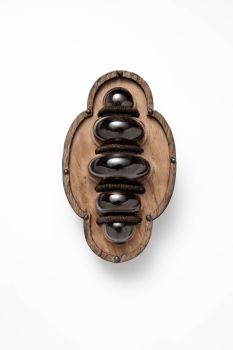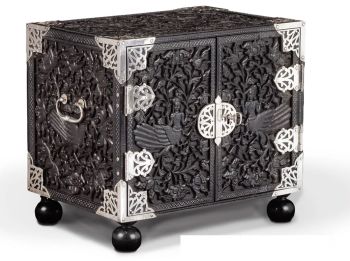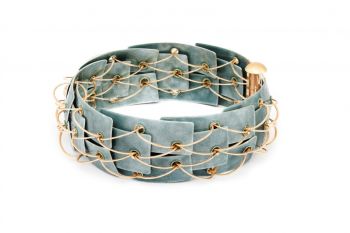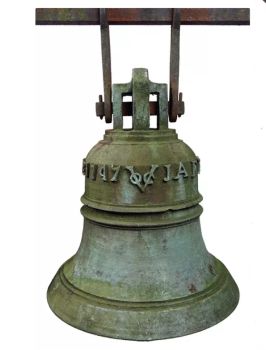AN UNUSUAL INDONESIAN LOBBED SILVER DISH late 17th
Unknown artist
Silver
Price on request
Zebregs & Röell - Fine Art - Antiques
- About the artworkAN UNUSUAL INDONESIAN LOBBED SILVER DISH
Jakarta (Batavia) or Coromandel coast, third quarter 17th century, apparently unmarked
The eight lobbed dish exuberantly decorated with floral motifs, with the middle section replaced, consisting of indistinctly marked German silver from the early 19th century, bearing the coat-of-arms of the Von Pfeffel family.
Diam. 30.5 cm
Weight 461 grams
Note:
Lobbed silver dishes with exuberant floral decorations were characteristic of the decorative arts in the Netherlands in the first half of the 17th century. This style of floral decoration was adopted by silversmiths as well as by furniture makers working on the Coromandel Coast and in Batavia, often by workers who had fled the Coromandel Coast because of war and famine. In Batavia this style was known as “Custwerck” (work from the Bengal coast).
These lobbed dishes are seldom marked. Only after 1667 the use of the town mark became obligatory in Batavia but only for silver made in Batavia not for silver imported in Batavia from other VOC settlements. The engraved coat of arms in the centre is a replacement of the original centre.
The coat of arms can be identified as those of Christian Hubert von Pfeffel (1765- 1834). As a diplomat, statesman, ambassador of Bavaria in London and Saxony and councillor to the King of Bavaria, he was made “Freiherr” in 1828 and since then used this coat of arms. His son Karl Maximilian Friederich Hubert Freiherr von Pfeffel (1811-1890) in 1836 married Karoline Adelheid Pauline von Rottenburg (1805-1872), the natural daughter of Prins Paul von Württemberg (1785-1852) and his mistress Margrethe Porth. Paul was the jounger brother of the King Wilhelm I of Württemberg (1781-1864). The heraldic motto of the von Pfeffels Vur Schande habe den Huot means as much as “Beware of Shame”. Christian Hubert Theodoor Marie Karl von Pfeffel Karl Maximilian’s grandson was the last male in the von Pfeffel line. His daughter, Marie Louise (Paris in 1882 - Cornwall 1944), born and grown-up in France, changed her name in de Pfeffel. She was the great grandmother of Boris Alexander de Pfeffel Johnson, the present British Secretary of State. None of the members of the von Pfeffel family had any direct links with the Dutch East Indies but indirectly by way of the Royal House of Württemberg they did.
Sophia Frederika Mathilda von Württemberg (1818-1877), daughter of Wilhelm I King of Württemberg, in 1839 married Willem III of the Netherlands and was Queen from 1849 till her death in 1877. The marriage was a disaster; Willem, known in Holland as “King Gorilla”, had many affairs and Sophie, being intellectually far his superior with much interest in art and culture, was a bit of a hysteric. Sophie was a niece of Prins Paul von Würtemberg and therefore a full cousin of Karoline von Pfeffel, the natural daughter of Paul von Württemberg. Karoline and Sophie were good friends.
In the collection of the Gemeente Museum Den Haag is a beautiful lobbed dish with a border of irrefutable late 17th century oriental origin but with an inserted European silver plaque in the centre showing Queen Sheba’s visit to King Solomon. The maker of this plaque must be sought in the circles around the Augsburg silversmith Johann Andreas Thelot (1655-1734). Although the dish and plaque date from around the same time they have been put together only in the late 19th century. In the late 19th century it was certainly not uncommon to make counterfeits of this kind to “improve”on things from the past, as these two examples show (Silver from Batavia, Titus Eliëns, Gemeentemuseum Den Haag, ill. 4). - About the artist
It might happen that an artist or maker is unknown.
Some works are not to be determined by whom it is made or it is made by (a group of) craftsmen. Examples are statues from the Ancient Time, furniture, mirroirs, or signatures that are not clear or readible but as well some works are not signed at all.
As well you can find the following description:
•“Attributed to ….” In their opinion probably a work by the artist, at least in part
•“Studio of ….” or “Workshop of” In their opinion a work executed in the studio or workshop of the artist, possibly under his supervision
•“Circle of ….” In their opinion a work of the period of the artist showing his influence, closely associated with the artist but not necessarily his pupil
•“Style of ….” or “Follower of ….” In their opinion a work executed in the artist’s style but not necessarily by a pupil; may be contemporary or nearly contemporary
•“Manner of ….” In their opinion a work in the style of the artist but of a later date
•“After ….” In their opinion a copy (of any date) of a work of the artist
•“Signed…”, “Dated….” or “Inscribed” In their opinion the work has been signed/dated/inscribed by the artist. The addition of a question mark indicates an element of doubt
•"With signature ….”, “With date ….”, “With inscription….” or “Bears signature/date/inscription” in their opinion the signature/ date/ inscription has been added by someone other than the artist
Are you interested in buying this artwork?
Artwork details
Related artworks
- 1 - 4 / 12
Unknown artist
Japanese transition-style lacquer coffer 1640 - 1650
Price on requestZebregs & Röell - Fine Art - Antiques
Unknown artist
A Dutch colonial Indonesian betel box with gold mounts1750 - 1800
Price on requestZebregs & Röell - Fine Art - Antiques
Unknown artist
A silver spoon commemorating Juff’ Margareta van Hoorn1656 - 1694
Price on requestZebregs & Röell - Fine Art - Antiques
Unknown artist
A Surinam-themed Amsterdam long-case clock1746 - 1756
Price on requestZebregs & Röell - Fine Art - Antiques
 Curated by
Curated byGallerease Magazine
1 - 4 / 24 Curated by
Curated byDanny Bree
Unknown artist
Dutchmen in miniature (Netsuke)1700 - 1900
Price on requestZebregs & Röell - Fine Art - Antiques
Unknown artist
A JAPANESE MODEL OF A NORIMONO, A PALANQUIN1650 - 1700
Price on requestZebregs & Röell - Fine Art - Antiques
Cornelis Anthonisz Theunissen
VERY RARE FIRST PRINTED MAP OF AMSTERDAM, A CITY ON THE RISE1544
€ 175.000Inter-Antiquariaat Mefferdt & De Jonge
 Curated by
Curated byDanny Bree
Unknown artist
A RARE COMPLETE INDIAN SADELI INLAID WORK AND WRITING BOX1800 - 1850
Price on requestZebregs & Röell - Fine Art - Antiques
Unknown artist
Japanese transition-style lacquer coffer 1640 - 1650
Price on requestZebregs & Röell - Fine Art - Antiques
Unknown artist
Two study portraits of Mas Marco Kartodikromo 1900 - 1950
Price on requestZebregs & Röell - Fine Art - Antiques
1 - 4 / 24Unknown artist
An Indian silver filigree casket with hinged coverearly 20th
Price on requestZebregs & Röell - Fine Art - Antiques
Unknown artist
A silver spoon commemorating Juff’ Margareta van Hoorn1656 - 1694
Price on requestZebregs & Röell - Fine Art - Antiques
1 - 4 / 24Unknown artist
Dutchmen in miniature (Netsuke)1700 - 1900
Price on requestZebregs & Röell - Fine Art - Antiques
Unknown artist
The bell of the VOC fortress in Jaffna, Sri Lanka1747
Price on requestZebregs & Röell - Fine Art - Antiques
 Curated by
Curated byDanny Bree
Unknown artist
An Indian silver filigree casket with hinged coverearly 20th
Price on requestZebregs & Röell - Fine Art - Antiques
1 - 4 / 12

